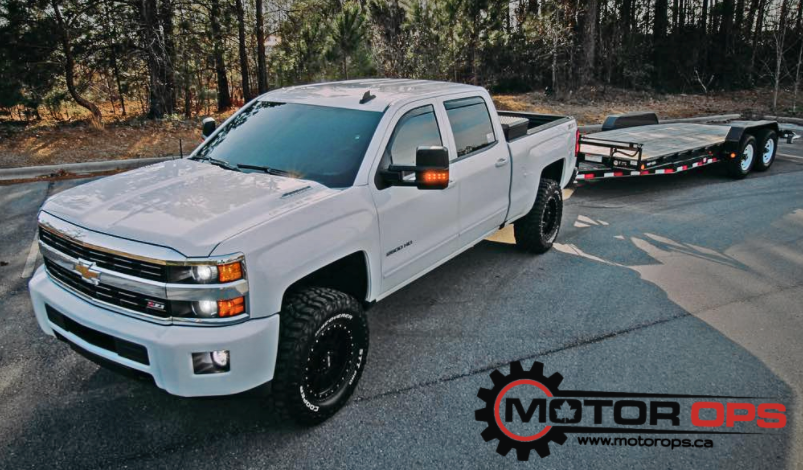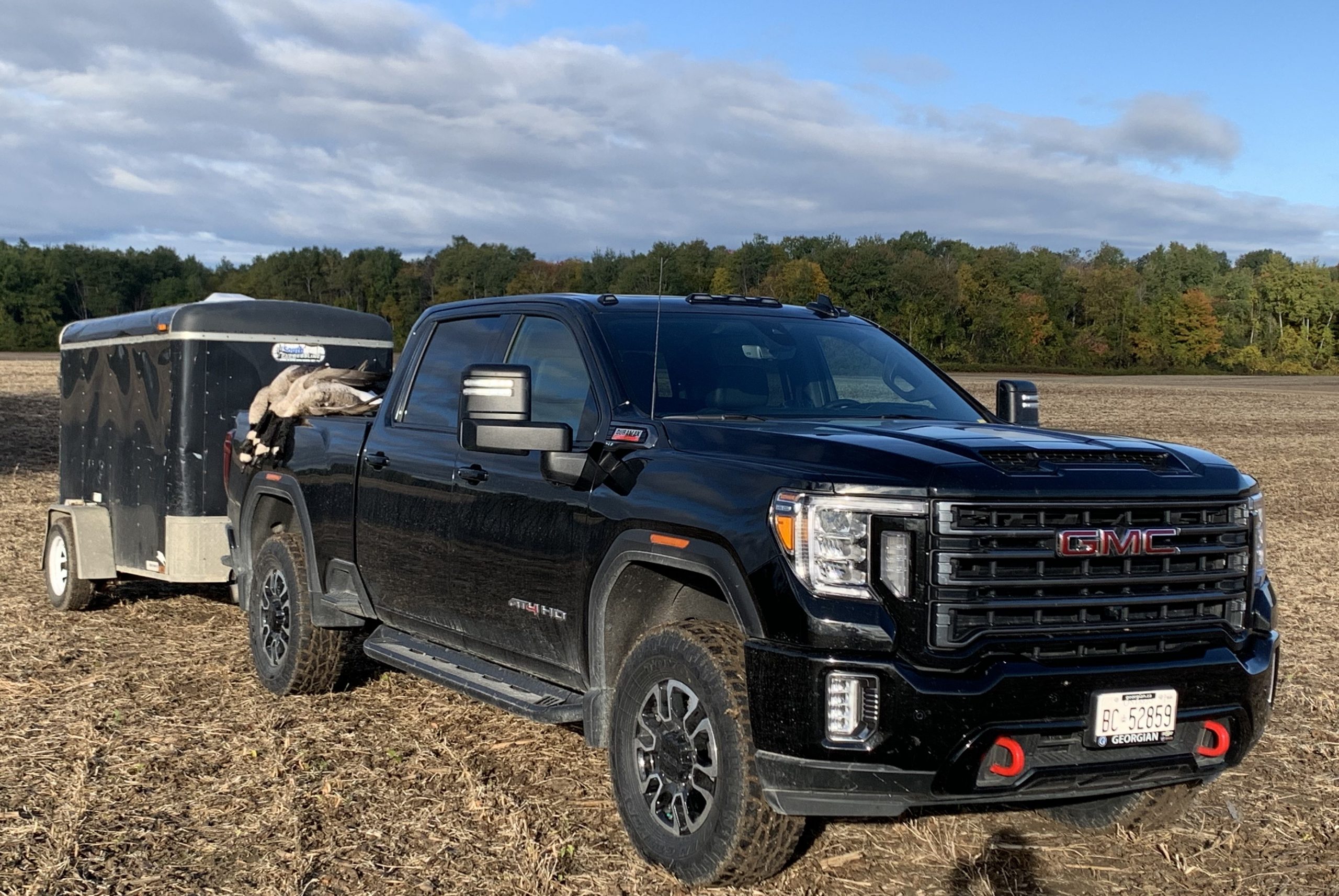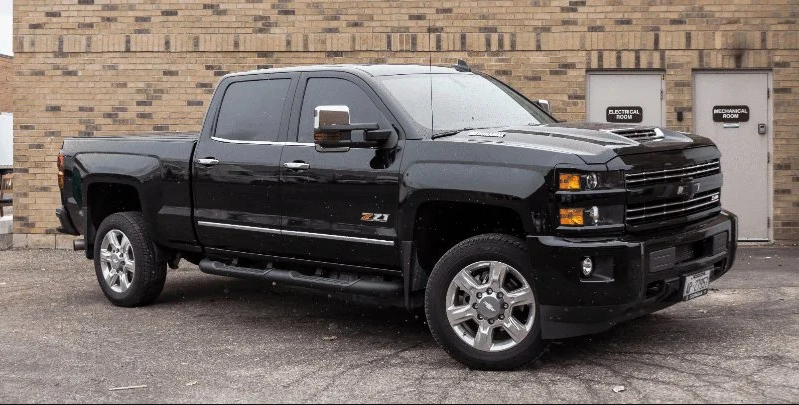Does your truck ever not shift the way you want it to?
You know, shifts that are either painfully slow, really rough, or just have a sloppy feel overall?
That’s where TCM tuning comes in.
You may already know about tuning your truck’s engine, but did you know that you can tune your transmission as well?
TCM tuning brings with it a long list of practical benefits, and you don’t need to be a drag racer or sled puller to notice the advantages — nearly any truck can benefit from having its transmission tuned.
So in this post, you’ll learn what TCM tuning is, why it’s important, a few areas where tuning your transmission makes a difference, and answers to some common questions we get asked.
What is TCM tuning?
TCM tuning is the modification of the programming calibration of a vehicle’s transmission control module (TCM), which handles the strategy, timing, and schedule for switching between gears. Tuning, in this use, is an aftermarket adjustment to the calibrations that are programmed by the factory.
Why is transmission tuning important?
Coming from the factory, your truck’s transmission calibration leaves a lot to be desired.
Pretty much everything in modern diesel pickups is decided by the computer, and this holds true for transmissions too – from determining line pressure through the gears to deciding when the torque converter locks up.
The factory calibration simply isn’t configured for optimal performance or driving experience, meaning there’s untapped potential just sitting in your truck right now, even if it’s bone stock.
“The factory tuning felt like it was basically there to protect the transmission from the gobs of torque these trucks produce,” one user put it. “After [TCM tuning], it felt like the transmission was saying ‘come on, let’s eat’.”
Beyond performance improvements, however, some of the more pleasurable benefits to TCM tuning come down to how enjoyable your truck is to drive and protecting the transmission itself.
Even crazier?
As a provider of ECM and TCM tunes, we’d estimate that, despite the many advantages, less than 5% of guys ordering engine tunes also add a transmission tune.
So let’s go a bit deeper into how a TCM tuning can benefit you and your truck.
What does TCM tuning do? How does it affect the way your truck drives?
Your TCM is responsible for shift strategy, shift scheduling, shift timing, and, depending on your make or model, a de-fuel as well.
Since all of these elements are electronically controlled via the computer, a transmission tune gives you the ability to control every single aspect of shift behaviour.
TCM tunes are similar to ECM tunes in that there are three core areas where it can have an impact:
- Drivability
- Performance
- Preventing wear and tear
Drivability
What exactly is “drivability”?
Simply put, it’s a general term that describes the overall experience you have while driving your truck.
And when it comes to spending tens of thousands of dollars on these machines, day-to-day drivability amounts to probably 90 percent of the way you use your truck.
So if you’re not happy with the way it’s shifting or responding, you’re likely not happy with your truck.
The good news is that TCM tuning can have a massive impact on how enjoyable a truck can be to drive.
What you’ll probably notice first is an improvement to general shift quality. Shifts that felt loose or sloppy before will feel firmer and smoother. This goes for both upshifts and downshifts.
“I noticed quite a difference in the feel of the truck driving. Shifts felt soft for lack of a better word before where there was this mushy feeling like the truck was not fully connected to the road. After the TCM tuning that was gone and it felt more like the engine was rigidly connected to the wheels,” as one Duramax forum user put it.
For example, say you’re coming down an on-ramp to the freeway.
You’re trying to accelerate and get up to speed, but it feels like it’s taking forever and when you do shift, it feels rough and clunky. Worse if you’re towing anything.
A truck with its TCM tuned will not only complete shifts faster, but those shifts will feel smooth and precise — like they should have been from the factory.
Performance
Under light throttle or cruising conditions your transmission will shift much like it does from the factory. Simple and straightforward, with nothing really to report.
But as you increase throttle input? Totally different story.
We’re talking engine lag, jerky response when shifting, weak performance when towing, and more.
You want the power to be there when you need it, along with that feeling when the torque converter locks up and really puts the power to the wheels.
A simple, inexpensive way to fix these things is through TCM tuning (even if you haven’t tuned your truck’s engine yet). With all of your transmission settings being monitored by the computer, tuning transmissions is a very important part of performance, according to Diesel World.
And when we say performance, we’re not meaning competition-level (even though a TCM tune can certainly help you if you’re racing).
We’re talking about day-to-day performance — when you’re trying to pass on the highway or when you pull up next to another guy at a red light.
The big way that a TCM tune helps with performance is through optimizing your shift schedule and improving when you actually change gears.
By optimizing the shift points, you’ll be able to stay in a higher rev range longer for better throttle response and also find the optimal point for locking up your torque converter clutch.
The result? More power over the range of your throttle and more power delivered to your wheels.
As a general rule, the more you demand from your truck, the more important transmission tuning is.
Protect against transmission wear and tear
As you start to tow more weight and/or raise your truck’s horsepower, you increase the wear and tear on your transmission, regardless of year, make, or model.
Without TCM tuning, you can actually damage your transmission and run into things such as clutch slippage and torque converter issues. That’s because TCM tuning alters shift points and valve body pressures to increase the stiffness in shifts and help the transmission cope with the increased power.
Because TCM tuning enables you to control when your torque converter locks up, you’ll not only reduce wear due to less slipping, but you’ll also operate more efficiently with lower transmission temperatures, too.
Plus, if you’ve already tuned your engine, a TCM tune can be matched exactly to your torque curve and learn to anticipate the torque load coming from your engine, safely and effectively.
While it can’t work miracles with broken or worn parts, TCM tuning can definitely help prolong the life of your transmission and play a role in protecting the investment you’ve made in your truck.
How much does TCM tuning cost?
The short answer? It depends. On two factors.
First, is your truck stock (or close to it)? As in, is your engine not currently tuned?
If that’s the case, then you’d be better off ordering ECM and TCM tunes together, since there are many advantages to doing them at the same time.
Next, if you already have an engine tune and just need a TCM tune added on, which make and model do you drive?
Whether you’re running a newer GMC or Chevy with adaptive transmission or an older generation, a Duramax transmission tune will run you in the neighborhood of $250 USD.
It’ll be in the same price range if you drive a Ram, though it’ll depend on which transmission you have. While we don’t currently provide TCM tunes for Aisin transmissions, we do provide 68RFE transmission tuning at roughly the same price as a Duramax.




